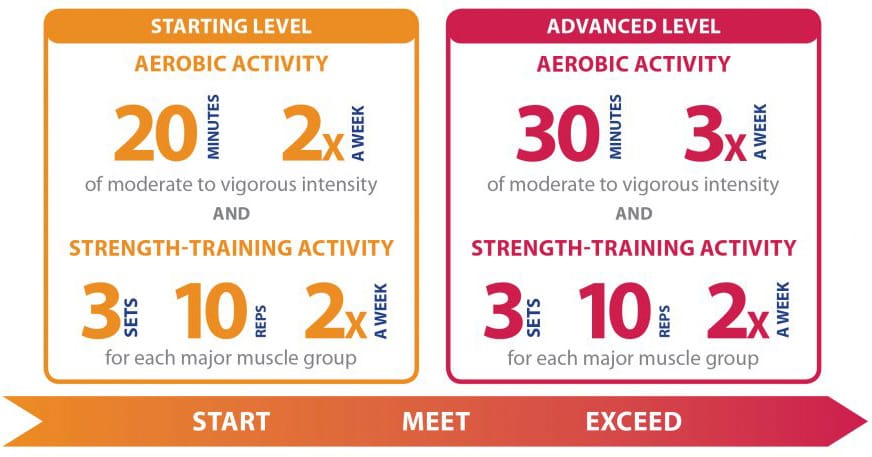

If you’re like most people who set New Year’s Resolutions, you strive to improve your health and well-being. Getting more physically active, or even just starting to exercise, is one of the most common New Year’s Resolutions. And for good reason: engaging in even a small amount of physical activity can lead to many physical and mental health improvements. Specifically for people with SCI, physical activity can protect and preserve mobility, increase endurance for wheeling or walking, and make transfers easier. Not to mention increased confidence and the opportunity to do fun activities together with family and friends.
None of this may be news to you, and it may not be enough to kick that New Year’s resolution into action. But what if getting a moderate amount of physical activity could reduce your neuropathic pain? Studies show exercise can effectively improve multiple types of pain in people with SCI, including neuropathic and musculoskeletal pain. However, how much exercise and how often it is needed to generate this benefit is not known.
It can be hard to find the approach to physical activity that works best for you. But there is help out there, including SCI BC’s new Peer Health Coaching Program. In Vancouver, there is ICORD’s PARC, a fully accessible fitness facility with people and equipment that make it easy to keep your New Year’s Resolution. If making it to PARC isn’t an option, our friends at SCI Action Canada, based at UBC Okanagan, have a number of resources on their website to help you get set up at home or in your community. SCI Action Canada also led the development of the Physical Activity Guidelines for Adults with Spinal Cord Injury, which we introduced to you in Winter 2019 issue of The Spin.

Now, the team at SCI Action Canada is looking into how meeting these guidelines might reduce chronic SCI pain.
Feel the Burn, Lose the Pain
Exercise can be a pain. But what if it could reduce your chronic pain? That’s the question the SCI Action Canada lab is trying to answer with their Exercise guidelines Promotion and Implementation in Chronic Spinal Cord Injury (EPIC-SCI): A Randomized Controlled Trial study. And as one of the largest behavioural interventions for chronic SCI pain ever tested, you can be part of making history by participating in the EPIC-SCI study!
We think the EPIC-SCI study is a great opportunity because you get a personalized exercise program, a trainer, and a health coach. And your weekly exercise can be completed from the comfort of your home or in a local fitness facility – your choice! Plus, even peers who are ambulatory, older adults, or those who have a non-traumatic SCI can participate. How cool is that?
Don’t miss your chance!
The EPIC-SCI study is currently recruiting participants from the Lower Mainland and the Okanagan. However, there may be opportunities for those of you outside of these regions, too. For more information, go to icord.org/studies/2021/11/epic-sci or email sharisse.lin@ubc.ca.



